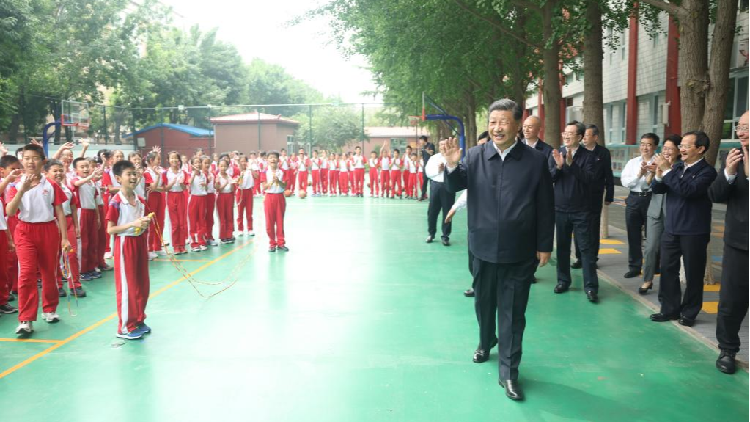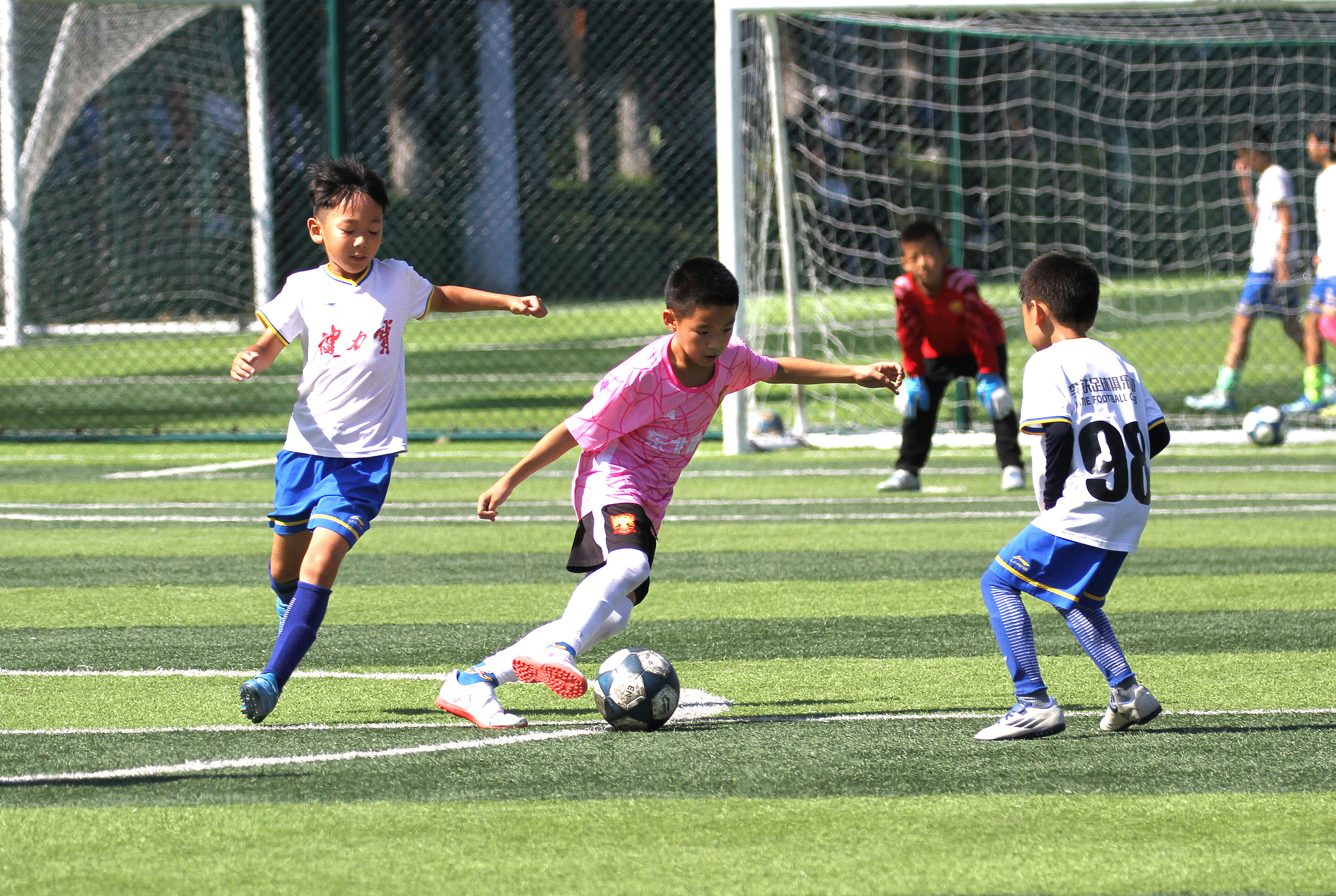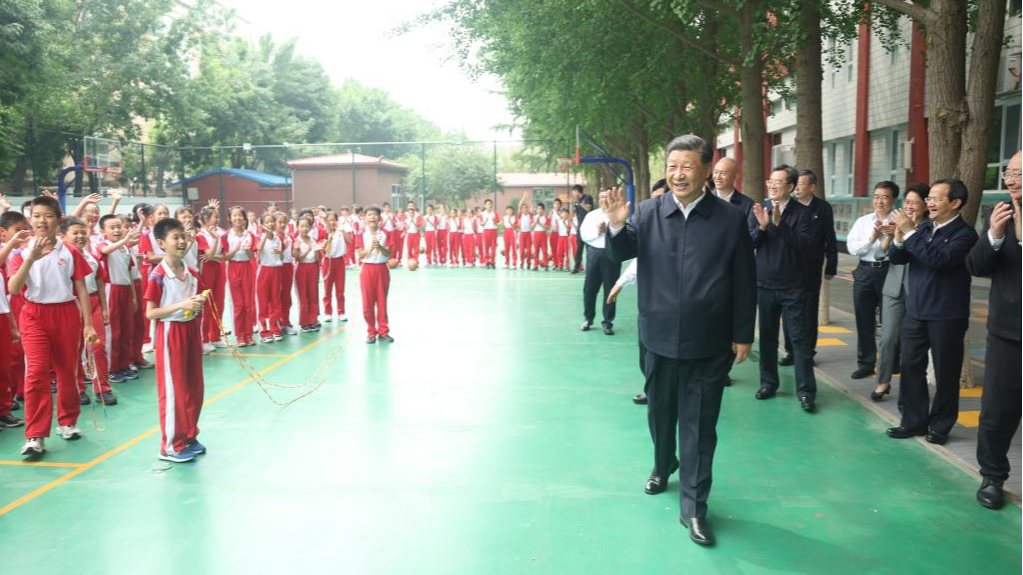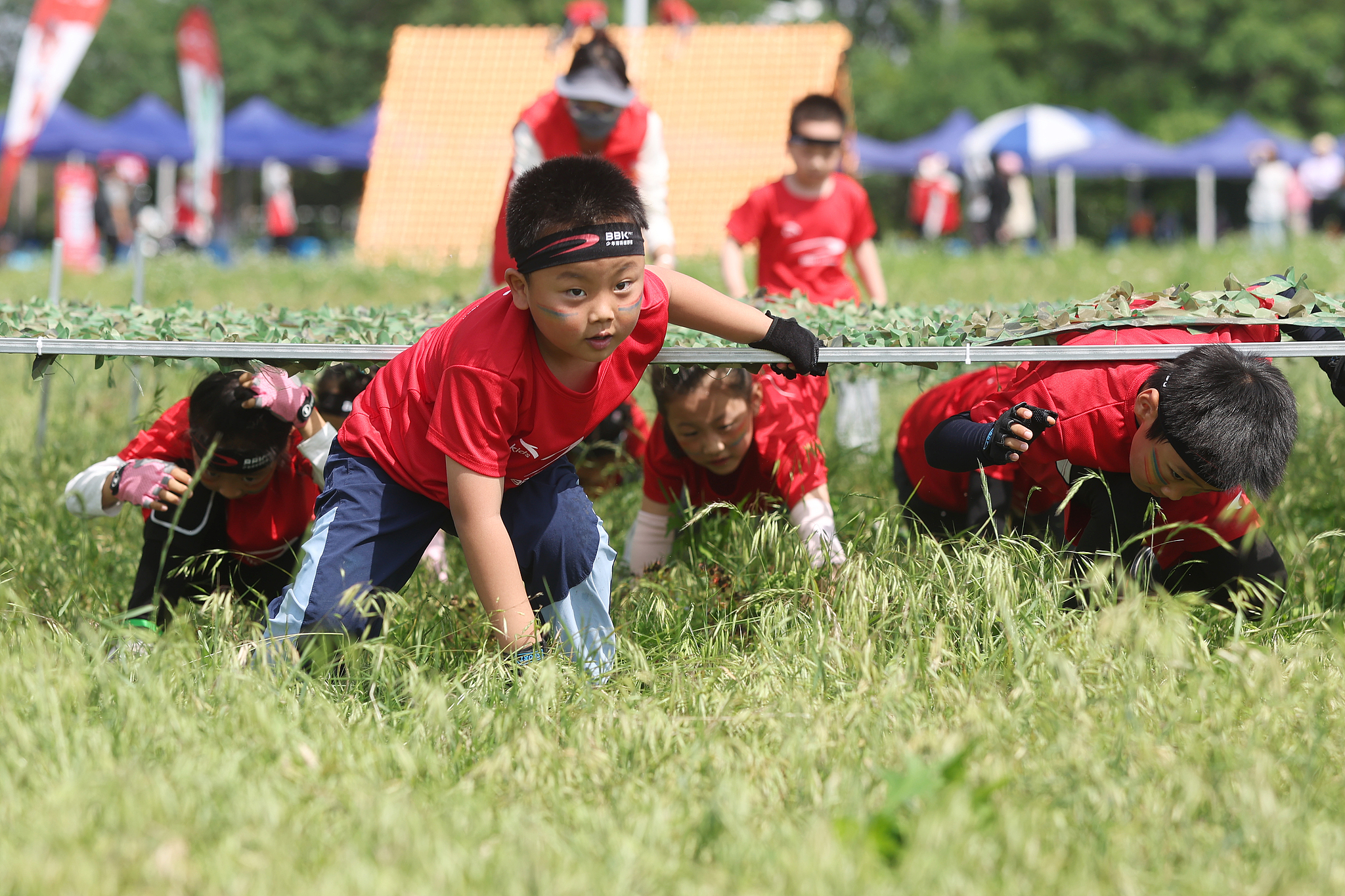International Children's Day Highlights China's Commitment to Children's Health and Development
Chinese President Xi Jinping emphasizes prioritizing children's health through expanded sports and physical activity initiatives nationwide.


In a significant move aimed at enhancing students' well-being, primary and secondary schools in Beijing launched an improved class schedule featuring a 15-minute break period beginning in the fall semester of 2024. This extension, lengthening recess by five minutes over the previous schedule, is designed to provide young learners increased time for physical activities and recreational opportunities—resources deemed vital to fostering both their physical and mental health.
Many students have already expressed enthusiasm for the expanded recess. “After the exercises, I feel full of energy,” shared Zhou Lezhi, a junior high student in Beijing. “It's really fun to do different kinds of exercises during the break, and it feels really different to do the activities created by ourselves.” The enhanced break period underscores a growing recognition within the education system of the need to strike a balance between academic commitments and regular movement.
Efforts to strengthen this balance extend far beyond Beijing. Across the country, local authorities are rolling out similar policies to ensure students enjoy structured recess activities and ample physical education (PE) classes. These actions answer the national call for a coordinated development of academic learning and physical exercise, reflecting China’s evolving perspective on nurturing children's holistic growth.

President Xi Jinping has consistently underscored that children’s well-being is a matter of the highest priority, repeatedly affirming that young people represent the country’s future and the hope of the entire nation. In his numerous interactions with students, school visits, and written responses to children’s letters, President Xi has stressed the importance of moral, intellectual, physical, aesthetic, and practical development.
Physical fitness, Xi argues, is the foundation upon which other qualities are built. He has called for greater efforts to build up children’s strength through sports and exercise, declaring that physical growth must come first for juveniles. At a symposium attended by experts in education, culture, health, and sports sectors, he emphasized the philosophy of “health first,” urging comprehensive reforms to promote both cultural learning and robust physical development.
A series of policies and legislative initiatives have given shape to these ideals. In 2021, the State Council released the Outline for the Development of Chinese Children (2021-2030), making children’s health a top developmental priority. The following year, a major revision to the Law on Physical Culture and Sports updated key sections, renaming them “National Fitness” and “Youth and School Sports” to better reflect the government’s focus on promoting public and youth fitness.

Additional measures include a 2023 guideline from central authorities, advocating for consistent financial support to ensure universal access to basic public education services. In 2024, the Ministry of Education, working alongside the National Health Commission and National Disease Control and Prevention Bureau, issued new guidance specifically targeting myopia prevention and control among young learners, outlining eight distinct strategies to lower the risk among kindergartners and primary school students.
To further combat growing rates of myopia and obesity, China’s 2035 education blueprint is pushing for at least two hours of daily physical activity for primary and secondary students. With these requirements in place, schools nationwide are striving to enhance the quality of PE programs—focusing on developing students’ speed, agility, strength, and endurance.
The message from the country’s leadership remains clear: China will only be strong if its young people are strong. By fostering physical vitality, balancing academics, and nurturing all facets of development, the nation continues to invest in a healthier, brighter future for its children.




